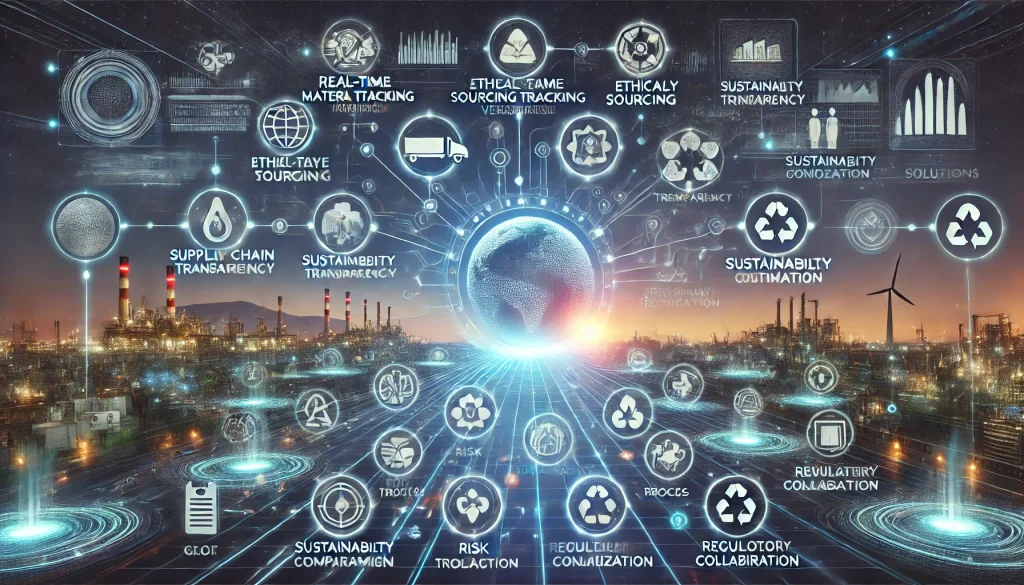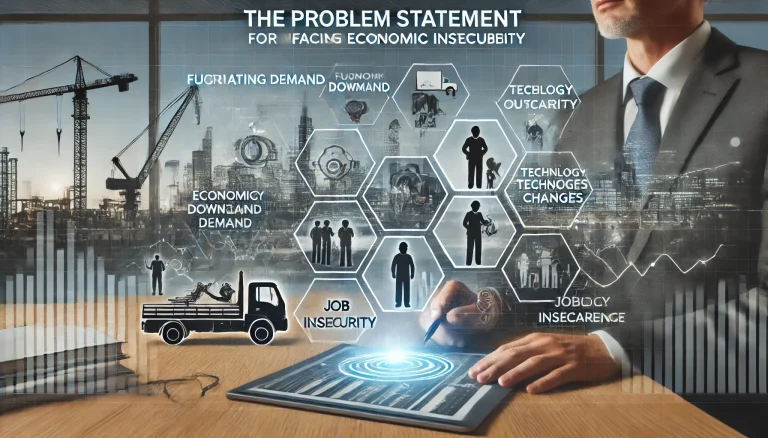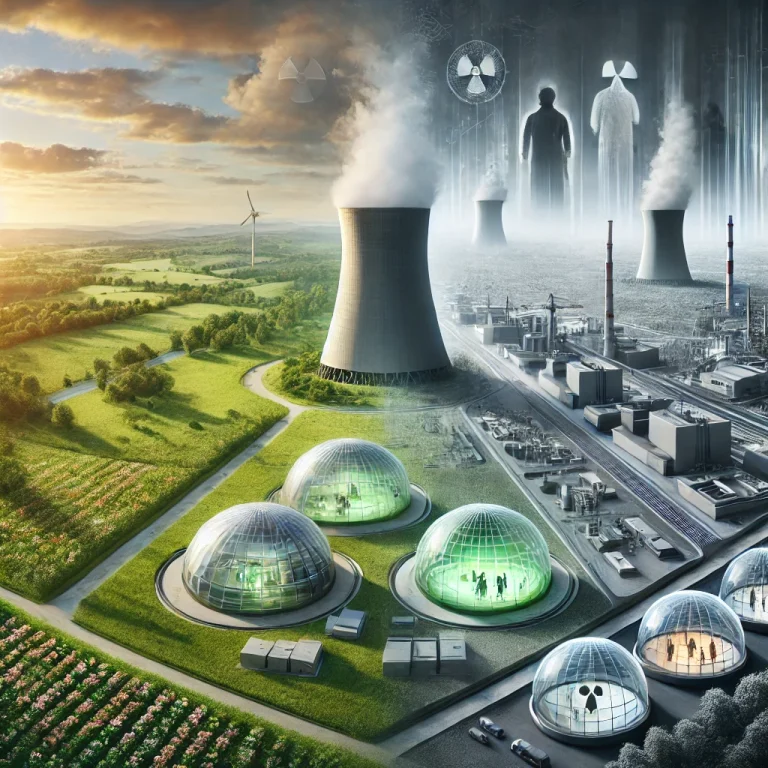Problem Statement
The energy sector faces significant challenges related to supply chain and material sourcing. Renewable energy technologies, such as solar panels and batteries, require rare earth metals and other critical materials, raising concerns about sustainability and ethical sourcing practices. Ensuring a reliable, ethical, and sustainable supply chain is essential for the long-term viability of renewable energy projects and the overall energy sector.
Pain Points
- Material Scarcity: Limited availability of rare earth metals and other critical materials.
- Ethical Sourcing: Challenges in ensuring ethical sourcing practices and avoiding conflict minerals.
- Supply Chain Disruptions: Vulnerability to geopolitical tensions, trade wars, and natural disasters.
- Sustainability Concerns: Environmental impact of mining and material extraction processes.
- Cost Fluctuations: Price volatility of rare materials affecting project costs and profitability.
- Regulatory Compliance: Navigating complex regulations related to material sourcing and supply chain practices.
- Traceability: Difficulty in tracking the origin and journey of materials throughout the supply chain.
- Technological Dependence: Reliance on advanced technologies that require scarce materials.
- Waste Management: Challenges in recycling and disposing of used materials and components.
- Global Competition: Intense competition for limited resources on a global scale.

Future Vision
Our platform envisions a future where the energy sector can ensure sustainable and ethical material sourcing while maintaining a resilient supply chain. Leveraging AI, blockchain, and IoT, the platform will provide real-time tracking, traceability, and transparency of materials from extraction to end-use. It will offer tools for ethical sourcing verification, sustainability reporting, and risk management. Our vision is to create a sustainable, ethical, and resilient supply chain ecosystem that supports the long-term growth of renewable energy technologies and the overall energy sector.
Use Cases
- Real-Time Material Tracking: IoT-enabled sensors for tracking materials in real-time.
- Ethical Sourcing Verification: Blockchain-based verification of ethical sourcing practices.
- Supply Chain Transparency: Tools for ensuring transparency and traceability throughout the supply chain.
- Sustainability Reporting: Automated reporting of sustainability metrics and compliance.
- Risk Management Solutions: Predictive analytics for identifying and mitigating supply chain risks.
- Cost Management Tools: Analytics for managing and predicting material cost fluctuations.
- Recycling and Waste Management: Solutions for efficient recycling and disposal of materials.
- Regulatory Compliance Tracking: Automated tracking of compliance with sourcing and supply chain regulations.
- Global Sourcing Optimization: Tools for optimizing global sourcing strategies and minimizing risks.
- Stakeholder Collaboration: Platforms for collaboration among suppliers, manufacturers, and regulatory bodies.
Target Users and Stakeholders
- User: Supply Chain and Procurement Managers in the Energy Sector
- Age Group: 30-60 years
- Gender: M/F
- Usage Pattern: Daily usage for monitoring, planning, and decision-making
- Benefit: Enhanced supply chain transparency, ethical sourcing, and sustainability
- Stakeholders:
- Renewable Energy Companies: Businesses developing and managing renewable energy projects
- Material Suppliers: Companies supplying rare earth metals and other critical materials
- Manufacturers: Firms producing renewable energy technologies and components
- Regulators: Government agencies overseeing sourcing and supply chain practices
- Investors: Entities investing in renewable energy technologies and supply chain solutions
- Environmental NGOs: Organizations advocating for sustainable and ethical sourcing practices
Key Competition
- SAP Ariba: Provides procurement and supply chain management solutions.
- IBM Blockchain: Offers blockchain-based solutions for supply chain transparency.
- EcoVadis: Specializes in sustainability ratings and supply chain transparency.
- Oracle Supply Chain Management: Comprehensive supply chain management solutions.
- Infor Supply Chain Management: Provides advanced supply chain planning and execution tools.
Products/Services
- SAP Ariba: Procurement and supply chain management platform.
- IBM Blockchain: Blockchain solutions for supply chain transparency and traceability.
- EcoVadis: Sustainability ratings and performance improvement tools.
- Oracle SCM Cloud: Integrated supply chain management solutions.
- Infor Nexus: Supply chain network providing end-to-end visibility and collaboration.
Active Startups
- Circulor: Blockchain technology for tracking and verifying ethical sourcing.
- Elementum: Cloud-based supply chain management solutions.
- Everledger: Blockchain-based solutions for supply chain transparency.
- SourceMap: Supply chain mapping and transparency platform.
- MineSpider: Blockchain platform for tracking responsibly sourced minerals.
- Verisart: Blockchain certification for supply chain traceability.
- Fetch.ai: AI-based solutions for optimizing supply chain operations.
- SupplyShift: Supply chain transparency and sustainability platform.
- Provenance: Blockchain technology for verifying product origins and supply chains.
- ClearMetal: Predictive logistics and supply chain visibility platform.
Ongoing Work in Related Areas
- AI and Machine Learning: Enhancing predictive analytics and risk management in supply chains.
- Blockchain: Ensuring transparency and traceability in material sourcing.
- IoT: Real-time monitoring and tracking of materials throughout the supply chain.
- Sustainability Reporting: Developing standardized metrics for sustainability reporting.
- Circular Economy: Innovations in recycling and waste management to support a circular economy.
Recent Investment
- Circulor: $14M in Series A funding led by The Westly Group, June 2021.
- Elementum: $60M in Series B funding led by Lightspeed Venture Partners, April 2018.
- Everledger: $20M in Series A funding led by Tencent, September 2019.
- SourceMap: $10M in Series A funding led by E14 Fund, May 2020.
- MineSpider: $2.9M in seed funding led by Innogy Innovation Hub, February 2019.
Market Maturity
The market for supply chain and material sourcing solutions in the energy sector is evolving rapidly, driven by the need for sustainable and ethical practices. Significant investments in AI, blockchain, and IoT technologies are transforming the industry, with both established companies and innovative startups leading the way. As the market matures, more integrated and advanced platforms are expected to emerge, supporting the sustainable and ethical sourcing of materials for renewable energy technologies.
Summary
The energy sector faces challenges related to supply chain and material sourcing. Renewable energy technologies, such as solar panels and batteries, require rare earth metals and other materials, raising concerns about sustainability and ethical sourcing practices. Our proposed platform leverages AI, blockchain, and IoT to provide real-time tracking, traceability, and transparency of materials from extraction to end-use. Key pain points include material scarcity, ethical sourcing, supply chain disruptions, sustainability concerns, cost fluctuations, regulatory compliance, traceability, technological dependence, waste management, and global competition.
Target users include supply chain and procurement managers in the energy sector, with stakeholders encompassing renewable energy companies, material suppliers, manufacturers, regulators, investors, and environmental NGOs. Key competitors like SAP Ariba, IBM Blockchain, EcoVadis, Oracle SCM Cloud, and Infor Nexus offer various supply chain management solutions. Active startups such as Circulor, Elementum, Everledger, SourceMap, and MineSpider are driving innovation in this space. Recent investments highlight significant interest and growth potential in sustainable and ethical supply chain solutions.
By addressing these challenges and leveraging advanced technologies, our platform aims to create a sustainable, ethical, and resilient supply chain ecosystem that supports the long-term growth of renewable energy technologies and the overall energy sector.



